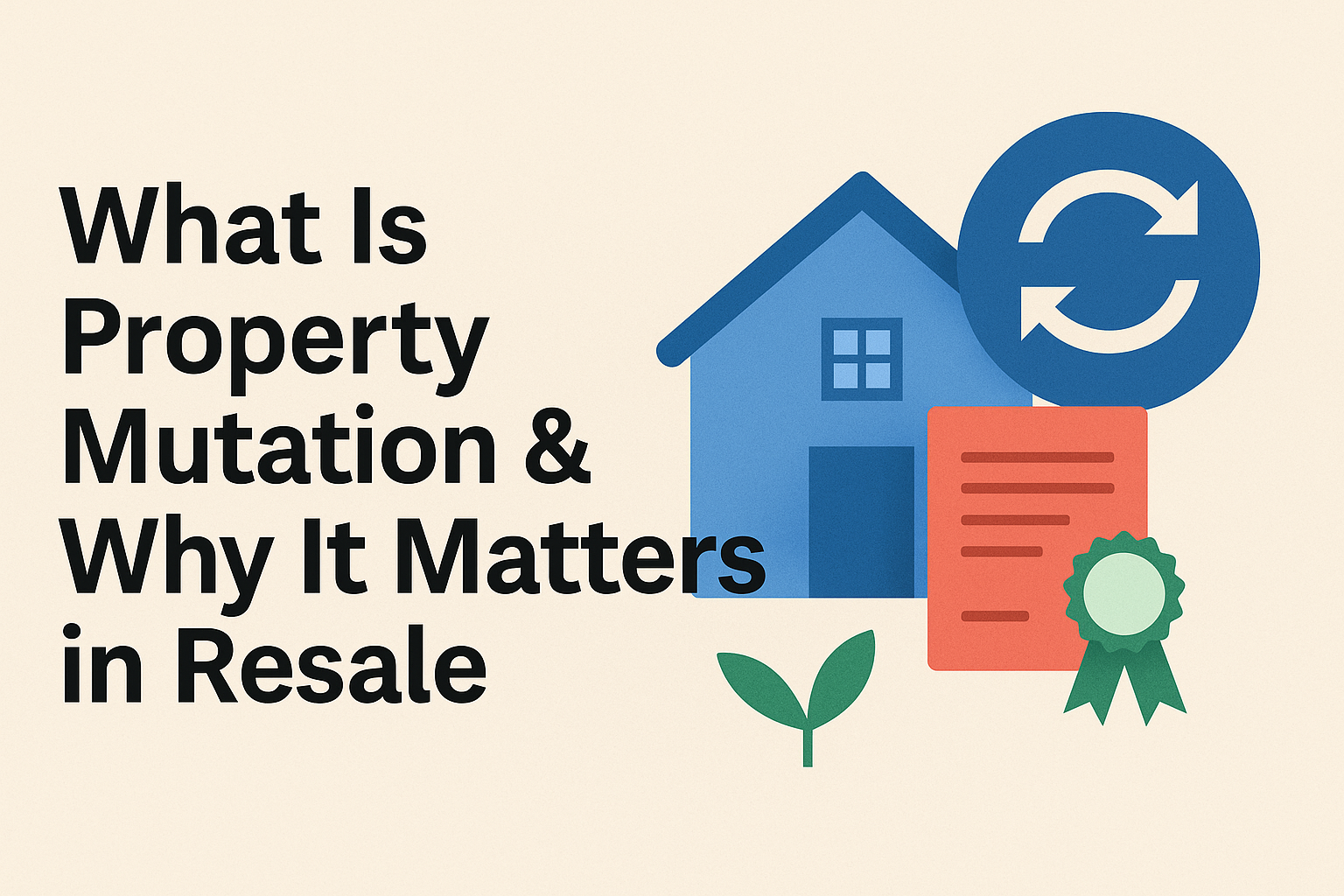When buying or selling a resale flat, one of the most important—but often ignored—steps is property mutation. If you’re unsure what property mutation is and why it matters, you’re not alone. Many buyers skip it, only to face legal and municipal issues later. This guide simplifies everything you need to know about what is property mutation & why it matters, especially in resale property scenarios.

Understanding Property Mutation and Its Importance in Resale
Let’s begin by understanding what is property mutation & why it matters in resale.
Property mutation is the process of updating ownership records with the local municipal authority after a property is sold, inherited, or gifted. Though your name is already on the sale deed, mutation ensures your name appears on the government’s property tax records.
So essentially, mutation validates your ownership in the eyes of the local authorities—which is critical for resale, taxation, and municipal services.
Why Property Mutation Matters When Buying or Selling Resale Property
Mutation might not sound urgent, but knowing what is property mutation & why it matters can save you from future hassles.
Legal Ownership Recognition Through Mutation
Mutation officially confirms your ownership with the municipal body. It helps when you want to pay taxes or apply for services like water or electricity.
Role of Mutation in Future Resale Transactions
If you plan to sell the property again, mutation ensures there are no delays due to ownership issues.
Property Tax Benefits After Mutation
After mutation, property tax bills are generated in your name, which helps avoid confusion with the previous owner’s details.
How Mutation Prevents Legal Disputes
Mutation minimizes the chances of ownership conflicts or fraud, especially in older properties.
👉 Explore mutation-ready resale flats in Pune today — genuine listings, updated daily.
When Should You Consider Property Mutation and Why It Matters
You should be aware of what is property mutation & why it matters in the following scenarios:
- After buying a resale flat or plot
- When inheriting property through a will or succession
- When receiving property through a gift deed
For accurate guidance, visit the official Department of Land Resources – Government of India.
Documents Required to Complete Property Mutation in Resale Cases
To apply for mutation, you’ll need the following:
- Registered Sale Deed (proof of ownership)
- Latest Property Tax Receipt
- Filled Mutation Application Form
- Aadhaar or valid address proof
- Affidavit and Indemnity Bond (in some cities)
Different municipal bodies may request slightly different documents, so it’s good to check their website or office.
Step-by-Step Guide: How to Apply for Property Mutation in Resale Property
Most cities today offer online property mutation portals. Here’s how to get it done:
- Visit your local municipal office or website
- Fill the mutation form and attach required documents
- Submit the form and pay the fee
- Await verification and receive your mutation certificate.
Risks of Ignoring Property Mutation and Why It Matters for Resale Buyers
Many buyers assume that registration alone is enough. But ignoring property mutation can cause:
- Tax bills in the seller’s name
- Issues while selling the flat again
- Trouble getting utility connections
- Legal complications in inheritance
So even though it may not be “legally compulsory,” it’s practically critical.
Final Thoughts on What Is Property Mutation & Why It Matters in Real Estate
To sum it up, knowing what is property mutation & why it matters helps secure your property legally, avoid future headaches, and simplify resale.
It’s a simple process that delivers peace of mind. Whether you’re buying or selling, make sure mutation is checked off your list.
🔍 Need guidance on mutation-ready resale flats in Pune? Reach out to Resale Expert today.

Join The Discussion